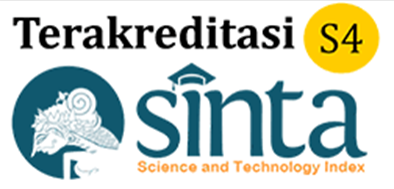Komitmen Afektif Manajemen dalam Implementasi Sistem Pengukuran Kinerja
Abstract
Indications that prove a public organization’s growth can be seen from how effective their services can be. Hence there are performance systems and performance measures to see one of the factors behind the effectiveness of such public service. And as application, the performance measurement for the public organization is done to increase the motivation of the organization's management that does not focus only on its output but the relevance of outcomes that can increase the value of public satisfaction of service accessibility. While many factors affect the implementation of performance measurements, one must be considered is affective commitment of management. Where in this case management is encouraged to continue to make improvements and changes in organizations. Researchers are taking a case study of one government agency of fisheries and east Java province, looking into some of the obstacles based on theory of constraints and how a perctive commitment looks for solutions.
References
Effendi, H. (2017). Pengaruh Faktor-Faktor Motivasi Dari Finansial , Psikologi , Dan Sosial Terhadap Prestasi Kerja Pegawai The Influence Of Motivational Factors Of Financial , Psychological , And Social To Employee Work Achievement Seorang Kepala. Jurnal Administrasi Publik (Public Administration Journal), 7(1), 17–32.
Hardiyansyah, H., & Sumantri, A. (2019). Analisis Pengembangan Organisasi Pelayanan Publik melalui Proses Diagnosa dan Intervensi. Jurnal Ilmiah Administrasi Publik, 5(1), 42–49. https://doi.org/10.21776/ub.jiap.2019.005.01.6
Ilmiah, J., Sumber, M., Manusia, D., Scorecard, B., Model, S., Yang, T., Pada, D., Publik, S., Indonesia, D., Dharmayuni, L., Khairuddin, B., Madya, P., & Perencanaan, B. (2021). Jurnal Ilmiah, Manajemen Sumber Daya Manusia. 4(3), 273–284.
Irtanto. (2020). Kinerja Birokrasi Pelayanan Sektor Publik: Perspektif Perkembangan Teori. Cakrawala: Jurnal Litbang Kebijakan, 14(2), 153–171. https://doi.org/10.32781/cakrawala.v14i2.354
Kinerja, M., & Sektor, O. (2016). -Tersedia online di http://ejournal.unmus.ac.id/index.php/societas. 5(01), 1–11.
Kurniawan, B. (2017). Teori Kendala Sebagai Alat Pengukuran Kinerja. Jurnal Akuntansi Bisnis, 9(2), 211–239. https://doi.org/10.30813/jab.v9i2.882
Pratiwi, I., & Akbar, R. (2018). Komitmen Afektif Manajemen, Implementasi Sistem Pengukuran Kinerja, Akuntabilitas, dan Kinerja Organisasi Publik dalam Perspektif Teori Institusional dan Teori Strukturasi. Jurnal Akuntansi Keuangan Dan Bisnis, 11(1), 1–10.
Rosiadi, A., Setiawan, M., & Moko, W. (2018). Praktek Manajemen Sumber Daya Manusia Berbasis Kompetensi pada Organisasi Sektor Publik. Jurnal Manajemen Dan Kewirausahaan, 6(2), 156–169. https://doi.org/10.26905/jmdk.v6i2.2208
Samsu. (2017). Metode penelitian: teori dan aplikasi penelitian kualitatif, kuantitatif, mixed methods, serta research & development. In Diterbitkan oleh: Pusat Studi Agama dan Kemasyarakatan (PUSAKA).
Ulum, A. S. (2012). Peran Pengukuran Kinerja Dalam Mendukung Good Governance Dalam Perspektif Agency Theory. Jurnal Dinamika Akuntansi, 3(1), 60–66. https://doi.org/10.15294/jda.v3i1.1945
Utomo, W. S. (2020). Implementasi Kewenangan Dinas Kelautan Dan Perikanan Dalam Melakukan Pengelolaan Dan Pengawasan Terhadap Sumber Daya Kelautan Di Teritorial 0 Sampai 12 Mil Laut Berdasarkan Uu No. 23 Tahun 2014 Tentang Pemerintahan Daerah (Studi di Dinas Kelautan dan Peri. Dinamika, Jurnal Ilmiah Ilmu Hukum, 26(1), 12–26.
Wargadinata, E. L. (2017). the Quality of Public Organization Performance Measurement. Sosiohumaniora, 19(2), 86–94. https://doi.org/10.24198/sosiohumaniora.v19i2.11497
Copyright (c) 2022 Delia Salsabila, Ningrum Fauziah Yusuf

This work is licensed under a Creative Commons Attribution 4.0 International License.













